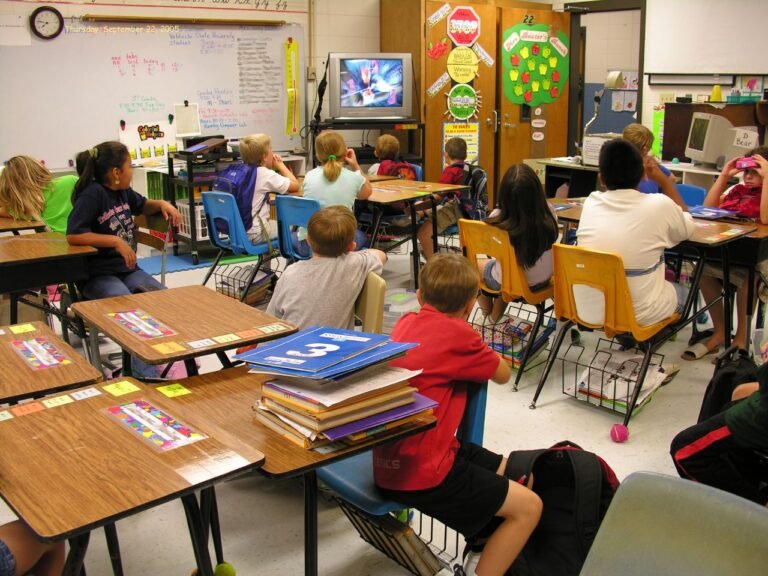Maryland Approves New Literacy Policy Focused on Third-Grade Students
Maryland State Superintendent Carey Wright provided an overview of the newly adopted literacy policy at the State Board of Education meeting on Tuesday in Baltimore.
On Tuesday, the Maryland State Board of Education granted final approval to a contentious literacy policy that allows for retaining third graders who do not meet reading standards, contingent on parental consent.
Under this new policy, if parents choose to advance their children to the fourth grade, they must also consent to enroll them in a complimentary reading support program. The implementation of this literacy plan will be gradual, while the student retention measure is scheduled to begin in the 2027-28 academic year.
This vote concludes months of debates surrounding a policy designed to enhance Maryland’s poor fourth-grade reading scores, which currently rank among the lowest nationwide. Since the state Department of Education introduced the new policy during the summer, more than 2,000 public comments were received.
“This process has elicited one of the highest levels of public engagement we have seen in recent years on a specific policy issue,” said school board President Joshua Michael prior to the board’s vote. “The version we are considering today has been improved for Maryland families and students due to this extensive public engagement. What we pass today is just the beginning.”
Michael ultimately decided to abstain, joining board member Joan Mele-McCarthy in doing so.
“Today’s focus has been on facilitation,” stated Michael. “Clearly, the board’s intention was to adopt the amended policy, and I support that as we prioritize literacy for this board and department moving forward.”
The final tally for the vote was 11-1, with newcomer Xiomara V. Medina casting the lone dissenting vote.
Medina expressed concerns about the difficulties faced by local school systems, also referred to as local education agencies (LEAs), in effectively engaging with the community. Some school officials have previously noted community engagement challenges while implementing the Blueprint for Maryland’s Future, the state’s education reform plan.
“What’s needed is a clearly defined strategy that LEAs can follow to boost community engagement so that this parental choice element can be executed faithfully,” she mentioned before her vote. “Otherwise, I am worried that this option could have negative consequences for our most disadvantaged students.”
The most significant alterations to the plan were made this summer when the parental consent requirement was introduced. The board approved three minor amendments just before the final vote.
As per the policy, schools or school systems are required to delay making a final decision on whether a third grader should be retained until they connect with parents or guardians through various communication methods, including mail, email, phone calls, and if appropriate, home visits, before the next school year.
This policy aims to improve student achievement in fourth-grade reading, which currently ranks 40th nationally in the National Assessment of Educational Progress (NAEP), also known as the Nation’s Report Card. The target is to elevate Maryland’s rank to the top 10 by 2027.
Preliminary results from the Maryland Comprehensive Assessment Program released in August indicated similarly disappointing scores, with only 48.1% of students demonstrating proficiency in English language arts during the previous academic year.
In addition to the third-grade retention component, the policy now encompasses reading interventions for prekindergarten students and professional training for educators teaching them. This training will include the science of reading focused on phonics, comprehension, and vocabulary instruction.
“We aimed to ensure the policy is inclusive,” stated Deann Collins, deputy state superintendent in the department’s Office of Teaching and Learning.
The Maryland initiative reflects similar policies established in Mississippi, where Maryland State Superintendent Carey Wright previously served as superintendent. That program has been credited with the “Mississippi miracle,” which signifies a marked improvement in the state’s reading assessment outcomes.
Additional clarifications and adjustments made in the approved plan involve offering technical assistance this academic year to implement an academic, behavioral, and social-emotional support framework (referred to as a multitiered system of support) and aiding local school districts in adopting the policy in the following school year. The state board is also expected to review the execution of local policies by summer 2026.

